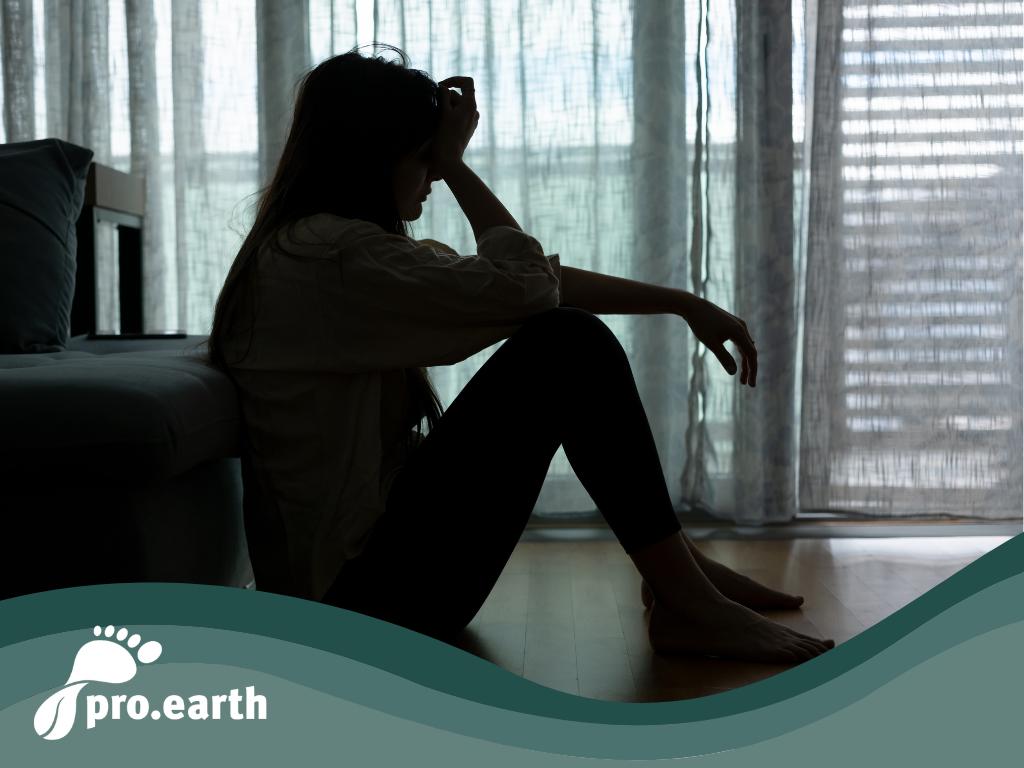Heat can trigger or exacerbate mental illness

Heatwaves not only pose a risk to physical health, but also have a serious impact on the psyche.
The enormous stress levels caused by sustained temperatures above 30 degrees Celsius can cause or exacerbate anxiety disorders or depression.
Aggressive behavior increases in the heat, as do states of exhaustion and depressed moods.
Given that the number of hot days will continue to rise to up to 80 per year by the end of the century, the psychological consequences of the climate crisis should not be underestimated, appeals environmental physician Hans-Peter Hutter from MedUni Vienna.
The danger to mental health comes less from isolated incidents such as individual hot days than from repeated and frequent negative events such as those caused by the climate crisis. The prevailing feeling that the stressful situation cannot be improved or changed is particularly hard on the psyche.
"In situations of helplessness, the stress hormone cortisol is produced in greater quantities, which, when released over a longer period of time, has a number of adverse effects on both physical and mental health," explains Hans-Peter Hutter from MedUni Vienna's Center for Public Health.
The psychological consequences of persistent heat are reflected in an increase in anxiety disorders and depression, but also in rising alcohol and substance consumption and their consequences. For those already affected, the symptoms of their mental illness can worsen. Global warming also leads to a rising suicide rate:
"According to scientific estimates, an increase in the average temperature by one degree Celsius is associated with a one percentage point increase in the suicide rate," says Hutter.
For example, data from the USA and Mexico show that the suicide rate increases by 0.7 percent and 3.1 percent respectively with a 1°C rise in the average monthly temperature.
Older or weakened people and socially disadvantaged people, who are often unable to escape the heat, are particularly affected by the negative consequences of heatwaves.
"Studies by MedUni Vienna have shown that during a heatwave, these groups in particular experience increased anxiety and depression," says Hutter.
Between aggression and exhaustion
Heat also has serious effects on behavior and increases the potential for aggression, which is also reflected in a rise in violent crime (e.g. increase in domestic violence).
At the same time, high temperatures have a dampening effect on the psyche: exhaustion caused by heat stress manifests itself, for example, in lethargy and apathy, depressed mood and reduced mental performance. This is particularly noticeable in urban areas and conurbations, where it is increasingly difficult to cool down and therefore recover at night.
In Vienna, for example, before 1991, an average of one to two tropical nights with temperatures above 20 degrees was to be expected each year. In the summer of 2015, 23 tropical nights were counted and in 2022 even 30.
Number of annual hot days on the rise
In Austria, a heatwave occurs when there are at least three consecutive hot days with maximum temperatures of more than 30 degrees.
According to GeoSphere Austria (formerly the Central Institute for Meteorology and Geodynamics), there were between three and twelve to a maximum of 20 hot days per year in Austria's provincial capitals between 1961 and 1990.
Between 1991 and 2020, between nine and 23 hot days were recorded in the provincial capitals in an average year, and the records were mostly over 40 hot days.
The current highest value of 40 heat days per year in Austria will be the norm by 2100 if global greenhouse gas emissions continue unabated. The records would then be in the currently unimaginable range of 60 to 80 heat days per year.
Book tip
"Health in the climate crisis. Impacts. Risks. Perspectives.", Hans- Peter Hutter (ed.), 2nd edition, series "Aspekte der Wissenschaft", MedUni Vienna at MANZ Verlag, ISBN 978-3-214-04244-8, 150 pages, 23.90 EUR, available in bookshops and at https://shop.manz.at






